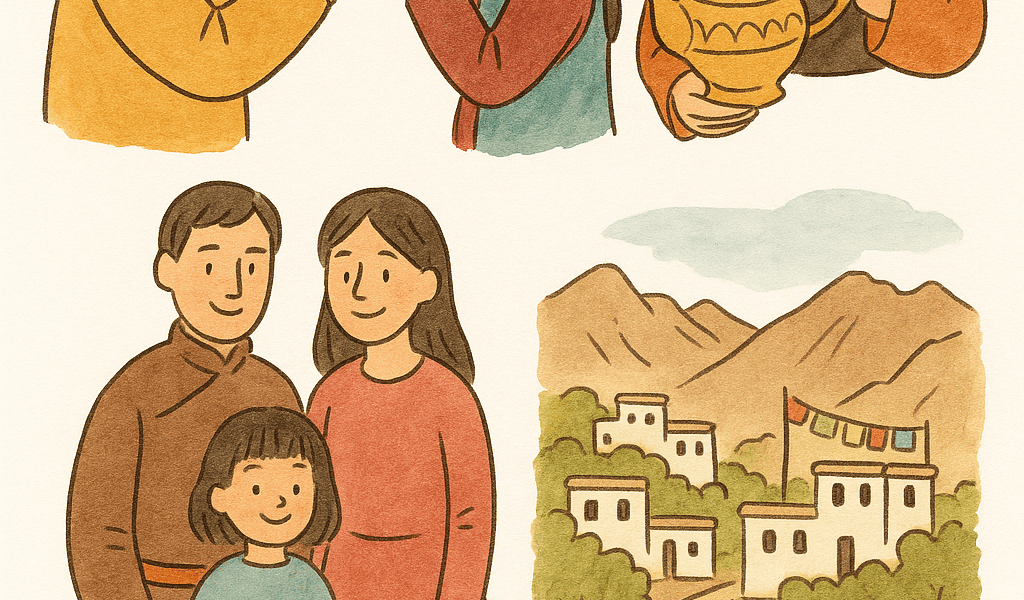Essential Ladakhi Phrases and Cultural Etiquette for Respectful Travelers
Visiting Ladakh is more than a high-altitude adventure—it’s a journey into a deeply rooted culture where kindness, tradition, and hospitality define daily life. Whether you’re trekking through remote Himalayan villages or sipping butter tea in a traditional kitchen, even just a few words in Ladakhi can transform you from a tourist into a welcomed guest.
This guide introduces essential Ladakhi phrases and cultural etiquette that will help you engage respectfully and meaningfully with the people of Ladakh. From the all-purpose greeting “julley” to the polite art of refusing tea (yes, that’s a thing!), you’ll find that small linguistic and cultural efforts can open big doors—sometimes quite literally.
Let this be your first step toward becoming not just another visitor, but a true friend of the Land of High Passes.
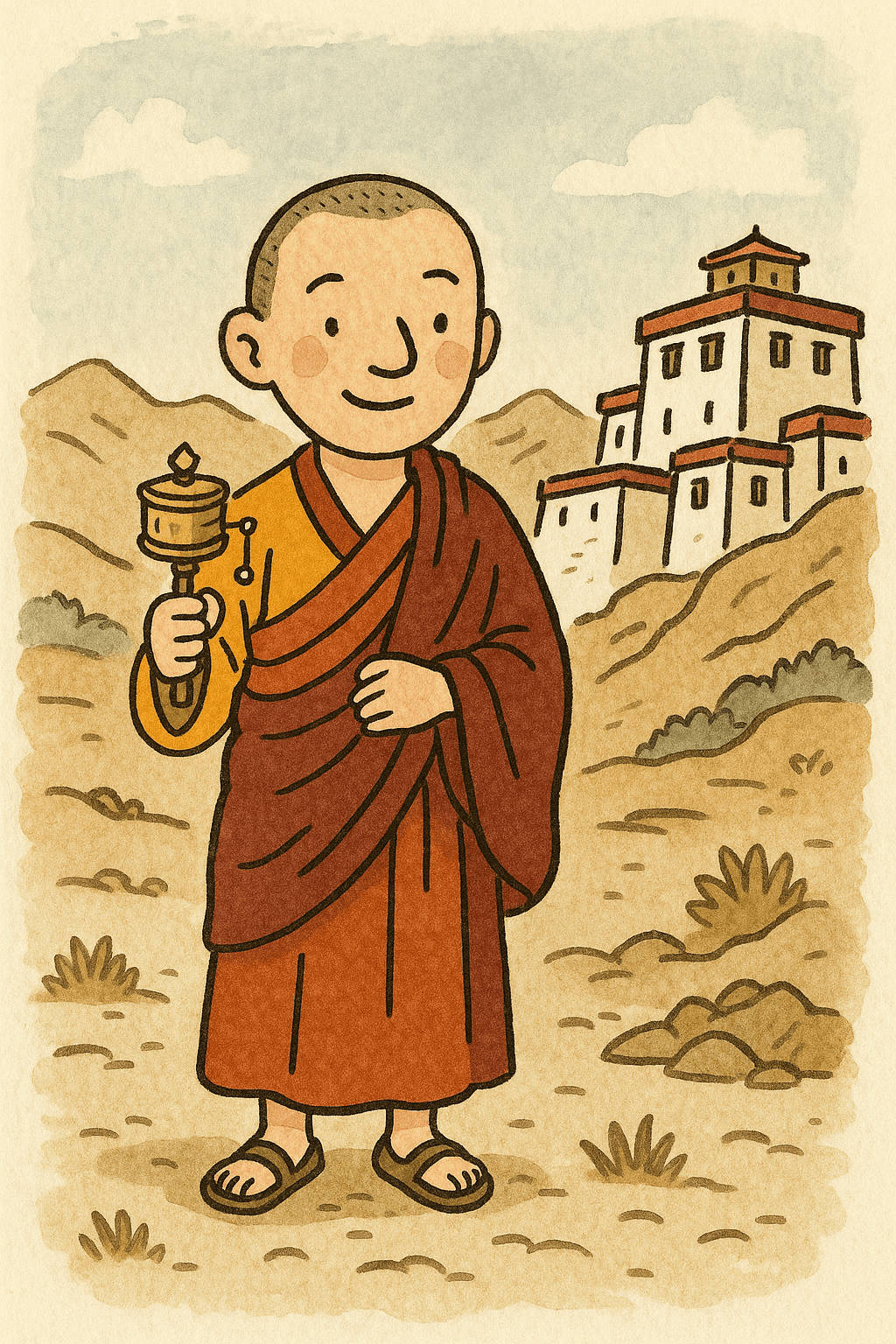
🗣️ Key Ladakhi Phrases to Connect with Locals
If you learn just one Ladakhi word, make it “julley”. This single word expresses hello, goodbye, please, thank you, and even “excuse me.” It’s warm, versatile, and universally recognized across Ladakh. Using it—even imperfectly—shows humility and respect.
Below are more phrases that come in handy when meeting locals, visiting homes, or communicating on treks and in markets. Don’t worry about pronunciation—Ladakhis will appreciate your effort more than your accuracy.
- julley– Hello, goodbye, thank you, please (all-purpose phrase)
- khamzang? – Are you well?
- khamzang – I’m well
- há-ma-go – I don’t understand
- há-go – I understand
- zhuks-le – Please sit down
- don-le – Please eat or drink
- tsapík-le – Just a little, please
- dik-le – That’s enough, thank you
- skyot-le! – Come in! (or Go!)
You’ll hear “-le” often—it’s a polite ending added to verbs and names to show respect. When in doubt, include it.
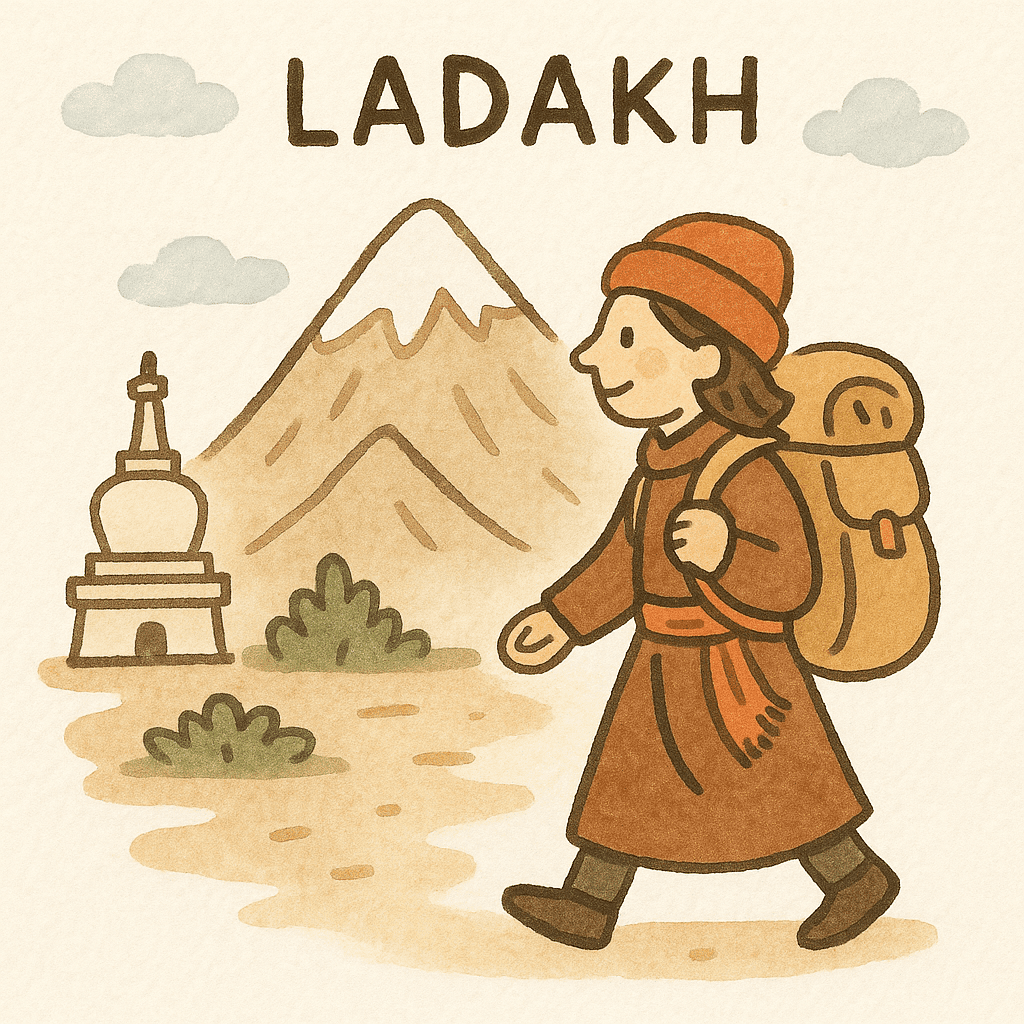
🍵 Ladakhi Food & Drink Vocabulary
Food and drink are central to Ladakhi hospitality. Even brief visits often begin with tea and end with more tea. Knowing a few words related to food helps you show gratitude and navigate mealtime with grace—especially in homestays or during local festivals.
- cha – Tea (used for yourself)
- solja – Tea (served to guests or elders)
- cha khan-te – Butter tea (salty and creamy)
- chang – Barley wine (fermented, mild alcohol)
- chu – Water
- chu-skol – Boiled/hot water
- tagi – Bread (wheat-based)
- sha – Meat
- zho – Yogurt (curd)
- thukpa – Noodle soup
- chuli – Apricot
- pating – Dried apricot with edible nut inside
Tip: If someone offers you tea or food, a polite “don-le” (please eat/drink) may be followed by gentle insistence. You can respond with “tsapík-le” if you’d like only a little, or “dik-le” to say you’ve had enough.
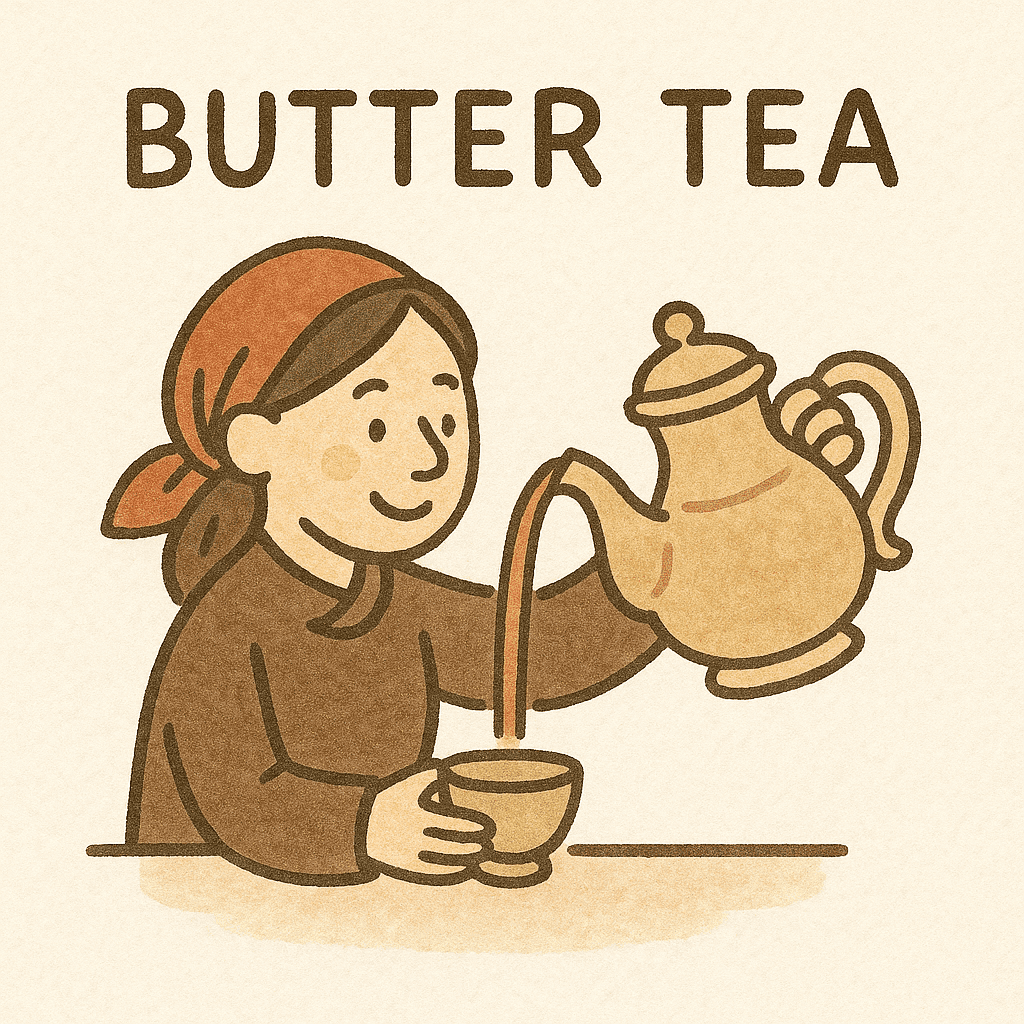
👨👩👧👦 Respectful Terms for Address
In Ladakhi culture, respect is often expressed through how you address others. Instead of using personal names, it’s common and polite to use familial or relational terms—especially with elders, monks, and hosts. Adding “-le” at the end of these words softens your tone and shows courtesy.
Here are some useful respectful terms you can use when speaking to locals:
- ama-le – Mother (used for older women or hosts)
- aba-le – Father (used for older men)
- acho-le – Elder brother
- ache-le – Elder sister
- nono-le – Younger brother (friendly or affectionate)
- nomo-le – Younger sister
- azhang-le – Uncle or monk
- ane-le – Aunt or nun
Using these forms naturally warms the interaction and is especially helpful when shopping, entering a home, or asking for help. For example, calling out “azhang-le!” in a shop is more respectful than simply saying “excuse me.”
🙏 Manners Matter: Cultural Etiquette in Ladakh
Ladakhis are known for their warmth and patience, but cultural missteps can still cause discomfort. By observing a few local customs, you show deep respect—and you’re more likely to be treated as a friend than as a tourist.
🫖 Polite Refusal is Expected
When offered food or drink, it’s considered polite to initially refuse once or twice before accepting. This custom, called “dzangs”, shows modesty and consideration. Don’t worry—your host will usually insist a few times. It’s all part of the ritual.
🍽️ Never Pollute Shared Food
One of the strictest taboos in Ladakh is putting anything from your mouth—or your used plate—back into a communal dish. This is considered “khatet” (polluted), and it can ruin the entire pot of food. Always use clean spoons or wait to be served.
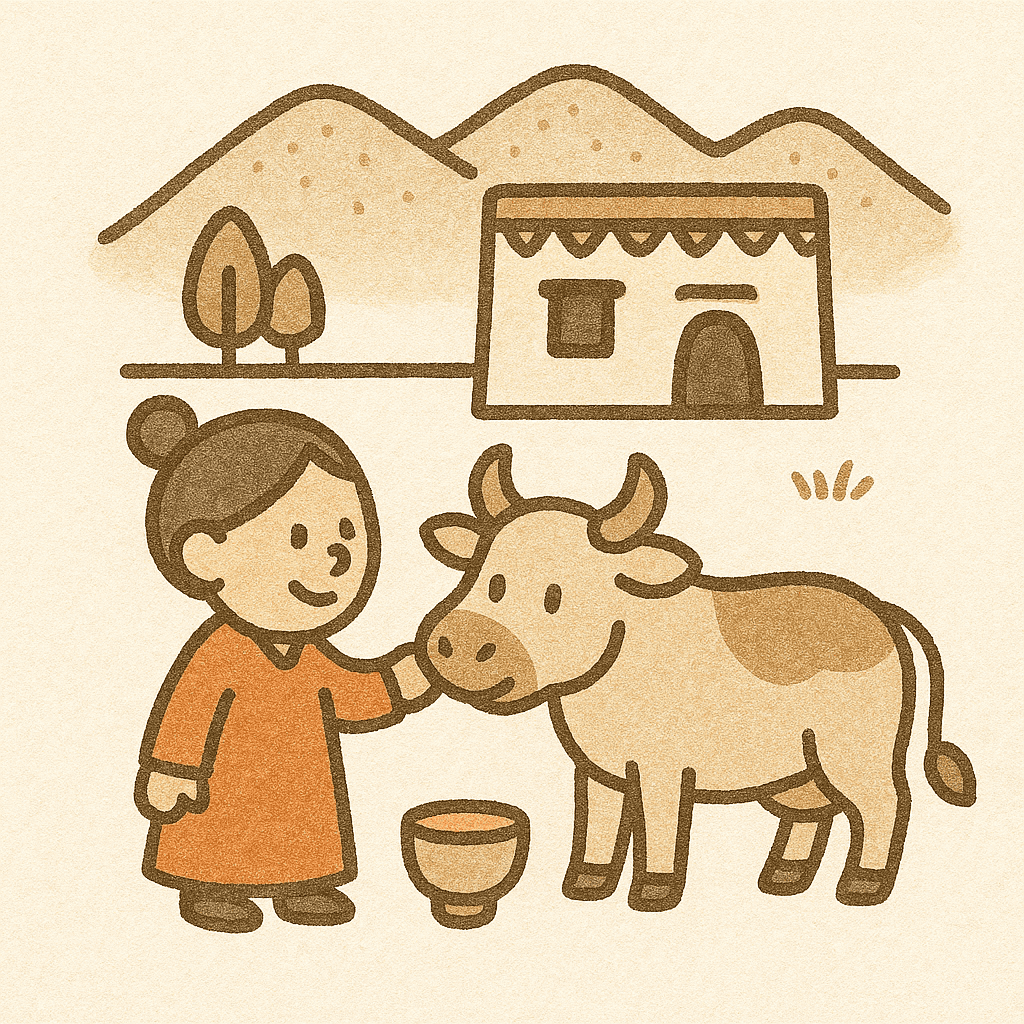
🦶 Feet are Spiritually Unclean
As in many Himalayan cultures, the feet are seen as both physically and spiritually unclean. Avoid stepping over books, food, or people. Never point your feet at religious objects or stoves. Instead, gently move items or walk around them.
🗣️ Use Honorific Forms
Ladakhi has special verbs and nouns to show respect. For example, instead of “eat” (za), use don-le when inviting someone to eat. Elders, monks, and guests are typically addressed with honorific forms, and the respectful suffix -le is added often in speech.
Don’t worry if you forget—Ladakhis are forgiving—but using these forms whenever possible builds goodwill quickly.
🧘 Final Thoughts
You don’t need to be fluent in Ladakhi to build meaningful connections. A warm smile, a respectful “julley,” and a basic understanding of Ladakhi manners can open doors that no money or guidebook ever could.
When you try to speak the local language—even a few words—you show that you care about more than just scenery. You’re saying: “I see you. I value your culture.” And in Ladakh, where tradition still shapes everyday life, that gesture means everything.
Whether you’re sharing chang with a farmer in the village or watching stars from a rooftop in Leh, remember: respect is the most universal language of all.
julley! May your journey through the Land of High Passes be one of kindness, wonder, and connection.

